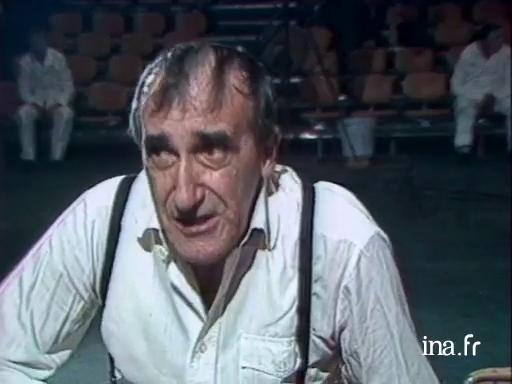Tadeusz Kantor, stage director

Information
Stage rehearsal of Where Are the Snows of Yesteryear, a play written and directed by Poland's Tadeusz Kantor, who is a guest of the autumn festival in Paris. He discusses the state of the siege in Poland.
Context
Plasticien, director, writer, scenographer and experimental performance producer, the Polis Tadeusz Kantor is an influential figure in post-war theatre. Born in 1915, he studied at the Krakow fine arts in the 1930s. Influenced by Dadaism, Constructivism and surrealism, he created a clandestine avant-garde theatre in Nazi occupied Krakow where his art, that he called "theatre of the dead", revealed a powerful plastic view.
From 1955 the clandestine theatre became the group Cricot 2 whose unique style productions, dreamlike almost, illustrates both Kantor's childhood memories and Polish political context. Present on stage, he became the secondary protagonist of every performance. International renown came with the troupe's participation in the Nancy Festival in 1971.
In 1975, withThe Dead Class, by Witkiewicz, Kantor left his experimental period and created a personal and mythical piece, where old folk carried mannequins on their backs, ghosts of their childhood. WithWielopole-Wielopole(1980), he castigated family, religion and war. His last piece, Today is my birthday, was only produced after his death in 1990.




